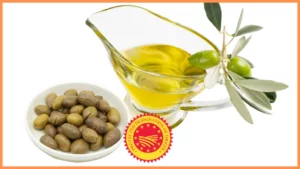The latest Intellectual Property Crime Threat Assessment from EUROPOL and the EUIPO is now available.
The latest Intellectual Property Crime Threat Assessment produced jointly between Europol and the European Union Intellectual Property Office (EUIPO), reveals that the distribution of counterfeit and pirated goods, unfortunately, increased during the COVID-19 pandemic.
The report is based on data gathered from across the EU and from Europol’s operational information. This information confirms that piracy and counterfeiting continue to pose a serious threat to the health and wellbeing of consumers, and to the European economy.
According to the latest data from the OECD and the EUIPO, imports of counterfeit and pirated goods reached EUR 119 billion in 2019. This represented 5.8 % of all goods entering the EU. Most alarmingly, an increasing number of these goods are counterfeit medicines, food items, cosmetics, and toys.
In 2019 and 2020, China (including Hong Kong) was the main country of origin for IPR-infringing goods seized at the EU’s external border. The second most common non-EU countries of provenance were Pakistan (in 2019) and Turkey (in 2020).
China (including Hong Kong) and Turkey remain the main countries of origin for counterfeit goods seized at the EU’s external border in the categories of clothing and accessories, shoes, sunglasses, bags (including wallets and purses), watches, and jewelry. These types of counterfeit goods are most frequently ordered online and discovered as part of postal shipments or on passengers entering the EU.
China and Turkey were among the most frequently reported non-EU countries of origin for counterfeit food and drink seized at the EU’s external border in 2019 and 2020.
In 2019, the cosmetic products and perfumes seized at the EU’s external border were mainly from China, Turkey, and the United Arab Emirates, while in 2020 they were mainly from China and Turkey. These products were mostly seized as part of post and parcel shipments and, to a lesser extent, on passengers crossing the border. Items originating from Turkey are typically transported by road.
China. India and Singapore were the countries of origin most commonly detected in 2019, while in 2020 Singapore and India were replaced by Turkey and, to a lesser extent, Vietnam.
The report goes on to highlight the importance of the digital and online world to criminal organizations, and how they use it to directly contact consumers, source their components, and use social media to their advantage.
This intelligence is particularly relevant in the context of the European Multidisciplinary Platform Against Criminal Threats (EMPACT) and Law Enforcement priorities to fight organized and serious international crime.





